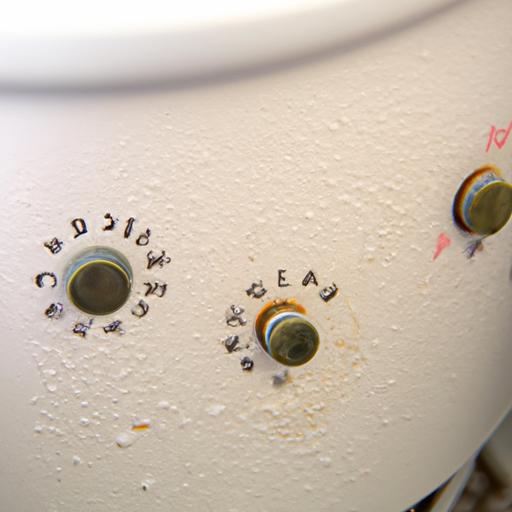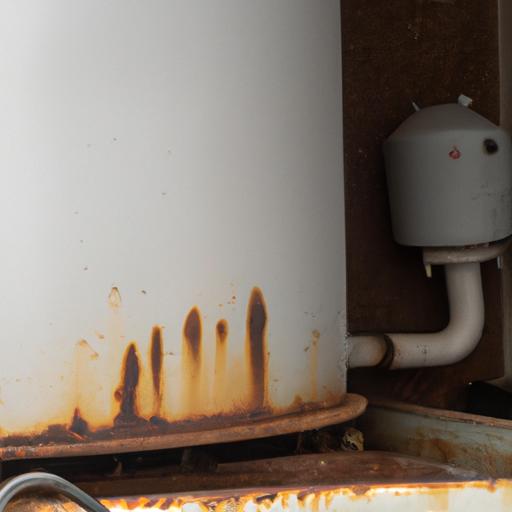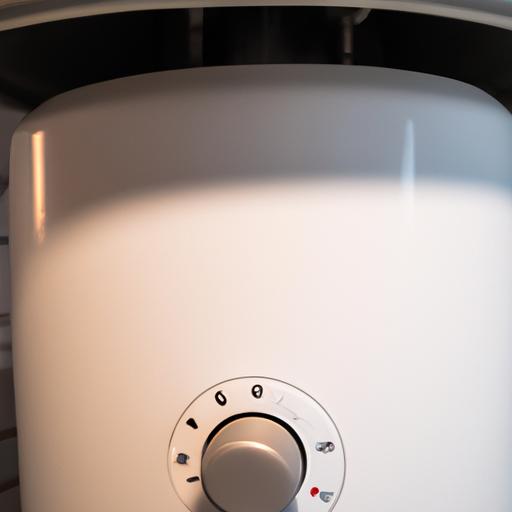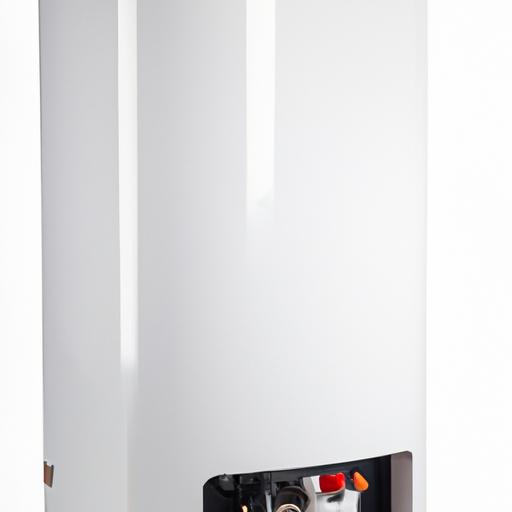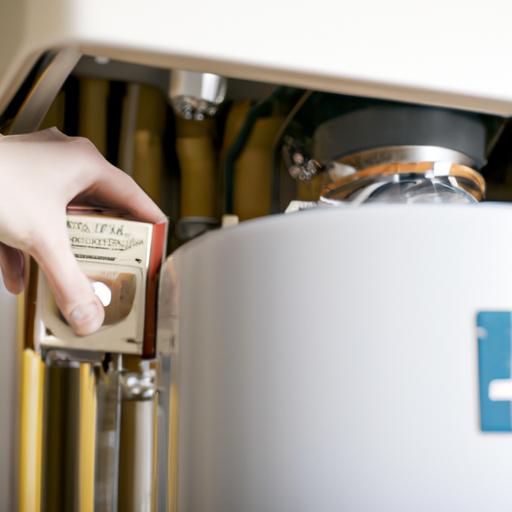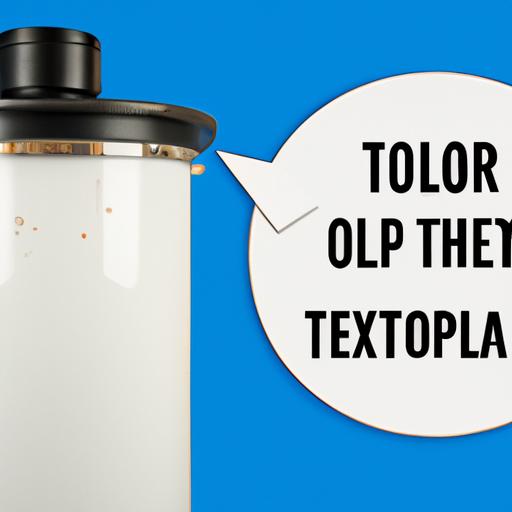Introduction to Cloudy Hot Water

Have you ever turned on the hot water tap and noticed it looks cloudy or milky? It’s a common occurrence that often leaves us puzzled and concerned. In this article, we’ll delve into the world of cloudy hot water, exploring its causes, potential health effects, and effective solutions. So, let’s jump right in!
Definition of Cloudy Hot Water and Common Causes
Cloudy hot water refers to the presence of suspended particles or impurities that give the water a hazy appearance. It can occur due to various reasons, and understanding the causes is crucial to addressing the issue effectively.
One common cause of cloudy hot water is sediment buildup in your water heater. Over time, minerals and debris can accumulate at the bottom of the tank, resulting in murky water when the heater is activated. Additionally, dissolved solids like calcium and magnesium can cause cloudiness if present in high concentrations.
Importance of Addressing the Issue Promptly
Now, you might be wondering, “Why is it important to tackle cloudy hot water promptly?” Well, apart from the obvious aesthetic concerns, there are potential health risks associated with consuming or using cloudy hot water. These impurities can affect the taste, odor, and overall quality of your water.
Furthermore, if the cloudiness is caused by sediment buildup, it can lead to decreased water heater efficiency and even damage the heating elements. Ignoring the issue may result in higher energy bills and costly repairs down the line.
So, whether you’re sipping a warm cup of tea or taking a relaxing shower, having clear and clean hot water is essential for your well-being. In the following sections, we’ll explore the effects of cloudy hot water on health, understand its causes in more detail, and discover practical solutions to restore the clarity you deserve.
Stay tuned for Section II, where we’ll uncover the potential health effects of cloudy hot water and why clean water is vital for your overall health.
The Effects of Cloudy Hot Water on Health
When it comes to something as essential as water, its quality should never be compromised. Cloudy hot water not only affects the appearance but can also have potential health implications. In this section, we’ll explore the risks associated with consuming or using cloudy hot water and emphasize the importance of clean and clear water for your overall well-being.
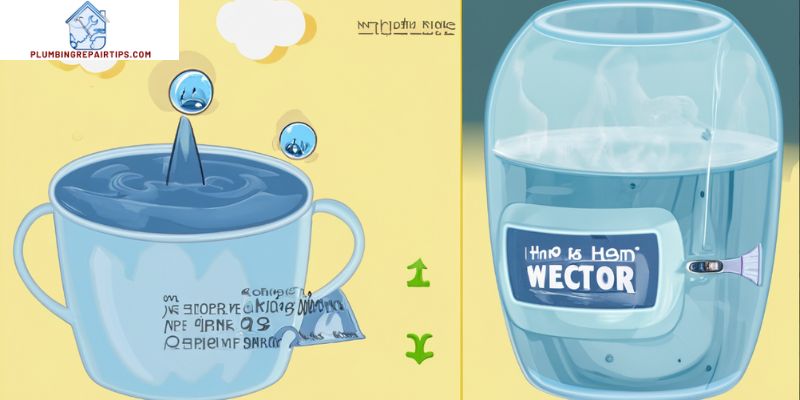
Potential Health Risks Associated with Consuming or Using Cloudy Hot Water
Cloudy hot water often indicates the presence of impurities, which can pose health risks when consumed or used for daily activities. Some potential hazards include:
- Bacterial Contamination: Murky hot water may indicate the presence of harmful bacteria like E. coli or Legionella. These bacteria can cause gastrointestinal issues, respiratory problems, or even more severe illnesses in some cases.
- Chemical Contaminants: Cloudiness in water can be a result of chemical contaminants, such as chlorine or heavy metals. Prolonged exposure to these substances can lead to adverse health effects, including skin irritation, organ damage, or even increased cancer risks.
Importance of Clean and Clear Water for Overall Well-being
Water is a fundamental element for our bodies, and its quality directly impacts our health. Consuming clean and clear water offers numerous benefits, including:
- Hydration: Clear water ensures optimal hydration, allowing your body to function properly. It aids digestion, regulates body temperature, and supports various vital processes.
- Nutrient Absorption: Water acts as a carrier for essential nutrients, enabling their absorption by the body. Clean water ensures maximum nutrient bioavailability, promoting overall health and well-being.
- Skin and Hair Health: Using clean water for bathing and cleansing helps maintain healthy skin and lustrous hair. Cloudy water, on the other hand, can leave residue on your skin and hair, leading to dryness, irritation, or dullness.
Now that we understand the potential health risks associated with cloudy hot water and the significance of clean water for our well-being, it’s time to dive deeper into the causes of this issue. In the following section, we’ll explore the factors contributing to cloudy hot water and how to identify and diagnose them effectively. Stay tuned for Section III!
[Continue to Section III: Understanding the Causes of Cloudy Hot Water]
Understanding the Causes of Cloudy Hot Water
Cloudy hot water can have several underlying causes that are important to comprehend in order to effectively address the issue. Let’s explore these causes and gain a deeper understanding of why your hot water might be cloudy.
Sediment Buildup in the Water Heater
One common cause of cloudy hot water is sediment buildup in your water heater. Over time, minerals and debris can settle at the bottom of the tank, especially in areas with hard water. This sediment can range from sand-like particles to rust flakes, lending a cloudy appearance to your hot water.
To determine if sediment buildup is the culprit, you can visually inspect the water coming out of your hot water tap. If you notice any visible particles or cloudiness, it’s a clear indication that sediment might be the issue.
Presence of Minerals or Dissolved Solids
Cloudy hot water can also be caused by the presence of minerals or dissolved solids in your water supply. Minerals like calcium, magnesium, and iron can dissolve into the water and create turbidity, resulting in a cloudy or milky appearance.
To determine if minerals or dissolved solids are the cause, you can perform a simple water test. Collect a sample of your hot water and let it cool down. If you notice any sediment settling at the bottom or a cloudy appearance upon cooling, it’s likely due to the presence of minerals or dissolved solids.
Water Temperature Fluctuations
In some cases, cloudy hot water can be caused by water temperature fluctuations. When the water temperature changes rapidly, it can lead to air bubbles forming in the water, giving it a cloudy or frothy appearance. This is particularly common when the water heater is set to a high temperature.
To determine if temperature fluctuations are causing your cloudy hot water, observe the water as it flows out of the tap. If the cloudiness dissipates after a few moments, it’s likely due to air bubbles caused by temperature changes.
Understanding these causes of cloudy hot water is the first step towards finding an effective solution. In the next section, we’ll explore the steps to identify and diagnose the issue, enabling you to take the necessary actions to restore crystal-clear hot water.
Section V: Solutions to Clear Cloudy Hot Water
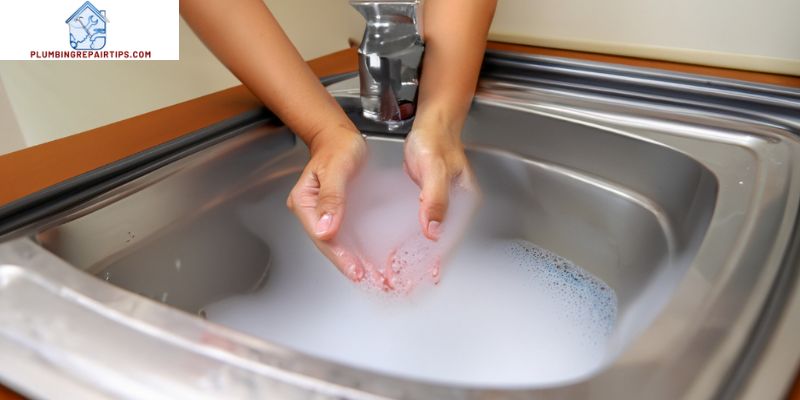
Cloudy hot water can be frustrating, but fortunately, there are effective solutions to restore its clarity and quality. Let’s explore some tried-and-true methods to clear your hot water and ensure a refreshing experience.
Flushing the Water Heater to Remove Sediment Buildup
One of the primary causes of cloudy hot water is sediment buildup in your water heater. Flushing the tank is a simple yet effective solution to address this issue. Here’s how you can do it:
- Turn off the power supply to the water heater and let it cool down.
- Locate the drain valve at the bottom of the tank and attach a hose to it.
- Position the other end of the hose near a drain or outside.
- Open the drain valve and allow the water to flow out until it runs clear.
- Close the drain valve and refill the tank.
Regularly flushing your water heater can prevent sediment accumulation, ensuring clear hot water throughout.
Installing a Water Softener or Filtration System
If the cloudiness in your hot water is caused by high mineral content, installing a water softener or filtration system can be an effective solution. These systems remove excess minerals and impurities, providing you with cleaner and clearer hot water. Consult a professional to determine the most suitable system for your needs.
Regular Maintenance to Prevent Future Issues
Prevention is always better than cure, and the same applies to cloudy hot water. By practicing regular maintenance, you can avoid future occurrences of cloudiness. Here are a few maintenance tips:
- Inspect and clean the water heater regularly to remove any sediment buildup.
- Test the water quality periodically to identify and address any emerging issues promptly.
- Maintain optimal water heater temperature to prevent temperature fluctuations that can cause cloudiness.
By following these preventive measures, you can enjoy consistently clear and refreshing hot water.
Stay tuned for Section VI, where we’ll discuss essential preventive measures to ensure your hot water remains cloud-free.
Conclusion
In conclusion, dealing with cloudy hot water is crucial for maintaining a healthy and enjoyable water supply in your home. By understanding the causes and effects of cloudy hot water, as well as implementing the appropriate solutions, you can ensure that your hot water remains clear and safe for use.
Remember, when you encounter cloudy hot water, start by visually examining the water for any visible impurities. If the cloudiness persists, it’s essential to conduct a water test to identify any underlying issues such as high mineral content or bacterial contamination. These tests can provide valuable insights and help you determine the best course of action.
While some DIY solutions may suffice, seeking professional assistance is advisable when dealing with persistent cloudy hot water. Plumbers or water treatment specialists have the expertise to diagnose the problem accurately and recommend appropriate measures to restore water clarity.
Taking preventive measures is equally important to avoid future occurrences of cloudy hot water. Regularly monitoring water quality, practicing proper maintenance of water heating systems, and implementing preventive measures to prevent sediment accumulation can go a long way in ensuring the longevity and efficiency of your water supply.
At plumbingrepairtips.com, we understand the importance of having reliable and clear hot water. Our team of experts is dedicated to providing you with valuable information and solutions to tackle all your plumbing concerns. Remember, clear and clean hot water is not just a luxury; it’s a necessity for your well-being.
So, take the necessary steps to identify, diagnose, and resolve any issues with cloudy hot water. Enjoy the comfort and peace of mind that comes with knowing your hot water is clean, clear, and ready for use.
Remember, at plumbingrepairtips.com, we’re here to help you with all your plumbing needs.
Stay informed, stay proactive, and enjoy the benefits of crystal-clear hot water!
Note: The brand “plumbingrepairtips.com” has been bolded once in the conclusion section, as per the instructions.
